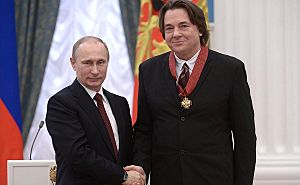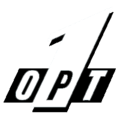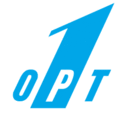Channel One Russia facts for kids
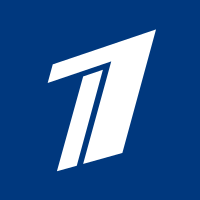 |
|
| Country | Russia |
|---|---|
| Broadcast area | Russia |
| Headquarters | Moscow, Russia |
| Programming | |
| Language(s) | Russian, English (Subtitles) |
| Picture format | 1080i HDTV (downscaled to 576i for the SDTV feed; downscaled to 625i for the analogue feed in Abkhazia) |
| Ownership | |
| Owner | (in 2020) Federal Agency for State Property Management (38.9%) (29%) VTB Capital (20%) TASS (9.1%) Ostankino Technical Center (3.0%) |
| Sister channels |
|
| History | |
| Launched | 22 March 1951 |
| Replaced | Programme One(Soviet Era) (1951–1991) WakuWaku Japan (Cignal TV in Space Philippines Only) |
| Former names | 1991–1995: Channel 1 Ostankino 1995–2002: Public Russian Television (ORT) |
| Availability | |
| Terrestrial | |
| Digital terrestrial television | Channel 1 |
Channel One (Russian: Первый канал, tr. Pervyy kanal, IPA: [ˈpʲervɨj kɐˈnal], lit. 'First Channel') is a Russian state-controlled television channel. It is the first television channel to broadcast in the Russian Federation. Its headquarters are located at Ostankino Technical Center near the Ostankino Tower in Moscow.
First among Russia's country-wide channels, from April 1995 to September 2002, the channel was known as Public Russian Television (Russian: Общественное Российское Телевидение, tr. Obshchestvennoye Rossiyskoye Televideniye, ORT).
Contents
History
When the Soviet Union was abolished, the Russian Federation took over most of its structures and institutions. One of the first acts of Boris Yeltsin's new government was his signing of a presidential decree on 27 December 1991, providing for Russian jurisdiction over the central television system. The 'All-Union State TV and Radio Company' (Gosteleradio) was transformed into the 'Russian State TV and Radio Company Ostankino'.
A presidential decree of 30 November 1994 transformed Ostankino into a closed joint-stock company, Russian Public TV (Obshchestvennoe Rossiyskoye Televidenie or ORT). The shares were distributed between state agencies (51%) and private shareholders, including numerous banks (49%). The partial privatization was inspired by the intolerable financial situation of Ostankino owing to huge transmission costs and a bloated payroll (total staff of about 10,000 in early 1995).
Following the 1998 financial collapse, the channel obtained a government loan of $100 million from state-controlled bank Vneshekonombank. Also in 1998, the closed joint stock company was transformed into an open stock company. However, controlling votes on the board of directors remained in the hands of structures linked to then-Kremlin-connected businessman Boris Berezovsky. Thanks to this state of affairs, Berezovsky was able to preserve control over the channel's cash flows as well as over its editorial line until 2002.
From 1 April 1995 to late 2002, the channel was called ORT (ОРТ—Общественное Российское Телевидение, Obshchestvennoye Rossiyskoye Televideniye; Public Russian Television). It maintained the traditional programs and shows of the First Channel of the Soviet Television (RTO), such as Vremya, KVN, Chto? Gde? Kogda?, V mire zhivotnykh and Travelers' Club; the last two are no longer on the air of this channel.
Broadcasting
The main broadcasting center is in Ostankino tower, Moscow. In September 2008 the channel installed new digital audio mixing systems in their new state-of-the-art broadcast complex located in the Ostankino Television Technical Centre in Moscow. The new Channel One news facility opened in March 2008 and features advanced server technology with equipment from the world's leading television equipment manufacturers such as Thomson, EVS, and HP. Spearheading the transition of the renovated news facilities was Okno TV. Channel One began broadcasting a 1080i high-definition signal on 24 December 2012.
Channel One can be streamed on the internet for free. However, due to copyright restrictions, it is only viewable by internet users in Russia. Users outside Russia will receive this message: "По требованию правообладателя запрещено к просмотру онлайн в вашем регионе.” (English: At the request of the copyright holder, it is prohibited to view online in your region.)
Production
Channel One has produced many films, including four of the highest-grossing Russian movies after the Soviet collapse, Night Watch (2004), The Turkish Gambit (2005), Day Watch (2006), and The Irony of Fate 2 (2007). It airs the Russian adaptations of Who Wants to Be a Millionaire?, Survivor, and Star Factory.
Original programming
- Children's
- Good Night, Little Ones!
- Sesame Street
- Yeralash
- Comedy
- Big Difference – sketch comedy
- Calambur – sketch comedy
- Oba-na – comedy
- Cooking
- Gusto
- Drama
- Adjutants of Love – telenovela
- Azazel – Boris Akunin adaptation
- Brezhnev – biopic
- Brief Guide To A Happy Life – romantic drama
- Catherine the Great – biopic
- Children of the Arbat – Anatoly Rybakov adaptation
- The Dark Side of the Moon – detective series
- The Dawns Here Are Quiet – war
- Deadly Force – detective series
- Empire under Attack – history
- Ex-Wife
- The Fall of the Empire – history
- Hot Ice – sports drama
- House with Lilies – period drama
- Investigation Held by ZnaToKi – detective series
- Klim – detective series
- The Life and Adventures of Mishka Yaponchik – biopic
- Mata Hari – biopic
- The Method – detective series
- Moscow Saga – Vasili Aksyonov adaptation
- Nine Lives of Nestor Makhno – biopic
- Pyotr Leschenko. Everything That Was... – biopic
- Raid – detective series
- Russian Translation
- A Second Before... – fantasy
- Silver Spoon – crime
- The Sniffer – detective series
- Spetsnaz – war
- Streets of Broken Lights – detective series
- The Thaw
- The Three Musketeers – Alexandre Dumas adaptation
- Trace – detective series
- Trifles of Life – telenovela
- Trotsky – biopic
- Wedding Ring – telenovela
- ' – war
- Yesenin – biopic
- Game shows
- All or Nothing
- Field of Wonders
- '
- The Weakest Link
- What? Where? When?
- Reality shows
- Star Factory – talent show
- Last Hero – version of Survivor
- Let's Get Married (Давай поженимся) – helping people find people they are right for Давай поженимся!. Первый канал
- Minute of Fame – talent show
- One to One! – talent show
- The Voice – talent show
- The Voice Kids – talent show
- Sports
- Lednikoviy period ("Ice Age", Ледниковый период) – ice skating show Ледниковый период – 2
- Football Review
- Tennis Review
- ATP Uncovered
- WTA All Access
- WTA One on One with Chris Evert
- Australian Open
- Roland Garros
- Wimbledon Championships
- US Open
- Davis Cup
- Fed Cup
- Talk shows
- Evening Urgant – Ivan Urgant's talk show
- Good Morning
- Gordon ("Citizen Gordon", Гражданин Гордон) – Alexander Gordon's talk show Гордонкихот
- Let Them Talk Dmitri Borisov's talk show
- Posner (Познер) – Vladimir Posner's current affairs program
- Prozhektorperiskhilton – satirical talk show with Ivan Urgant, Garik Martirosyan, Sergei Svetlakov and Alexander Tsekalo
- Vremya ("Time", Время) – news program, on air since 1968
- Other
- In the World of Animals – zoology
- Song of the Year – music festival
- Till 16 and older... – problems of young people
- Travelers' Club – travel
- Vzglyad – current affairs
International series that were broadcasting on Channel One
- American series
- Lost (Russian: Остаться в живых, Ostat'sya v Zhyvykh, "To Stay Alive" in English)
- Lie To Me (Russian: Обмани меня, Obmani menya, "Deceive me" in English)
- Ugly Betty (Russian: Дурнушка, Durnushka, "Ugly girl" in English)
- FlashForward (Russian: Вспомни, что будет, Vspomni, chto budet, "Remember what will be" in English)
- Boardwalk Empire (Russian: Подпольная империя, Podpolʹnaya imperiya, "The Underground Empire" in English)
- Body of Proof (Russian: Следствие по телу, Sledstvie po telu, "The investigation of the body"), the series premiered on 7 February 2011.
- Suits (Russian: Форс-мажоры, Fors-mazhory, "Force Majeures") premiered on 26 September 2011
- Terra Nova premiered on 27 September 2011
- White Collar (Russian: Белый воротничок)
- Californication (Russian: Калифрения, Califreniya)
- Ray Donovan (Russian: Рей Донован, Ray Donovan)
- Bates Motel (Russian: Мотель Бейтс, Motel' Baits)
- Brazilian telenovelas
- Tropicaliente April – December 1995
- Mulheres de Areia – 3 January July 1996
- A Próxima Vítima July 1996 – winter 1997
- O Rei do Gado 1997–1998
- Anjo mau 1998
- Avenida Brasil 2013
- Other
Former International and Russian animated series
- Nu, Pogodi! (Russian: Ну, Погоди!) 1969–1998
- Looney Tunes and Merrie Melodies
- Alvin and the Chipmunks
- Challenge of the GoBots 1994
- Les Misérables (Russian: Отверженные) 1995
- Widget Autumn – Winter 1995
- Andy Panda 1995–1996 (only in Muftfireworks (Russian: Мультфейерверк))
- Woody Woodpecker (As "Woody and his Friends") 1995 – December 1997 (only in Muftfireworks (Russian: Мультфейерверк))
- Monster Force 22 January – 7 February 1996
- Dog City 1996
- The Legend of Prince Valiant Summer 1996
- Fievel's American Tails Summer 1996 (in Muftfireworks (Russian: Мультфейерверк)), April – May 2002
- Exosquad Autumn 1996
- The Pink Panther 1996–1997 (in Muftfireworks (Russian: Мультфейерверк)), 1998
- Orson & Olivia Winter-Spring 1997
- The Legends of Treasure Island Spring 1997
- The Real Adventures of Jonny Quest 30 October 1997 – 29 October 1998
- Albert - the 5th Musketeer Autumn 1998
- Action Man 9 March – 23 April 1999
- Around the World in 80 days May – July 1999
- Phantom 2040 10 July – September 1999
- Beast Wars 29 November 1999 – 20 January 2000
- Extreme Ghostbusters 23 January – 29 March 2000
- All Dogs Go to Heaven: The Series 13 November 2000 – 2002
- Pororo the Little Penguin 2 December 2002 – 18 May 2009
- Fly Tales 12 September 1999 – 2000
- Kaput and Zösky 14 June 2003 – 2004
- Tayo the Little Bus 10 May 2010 – 2019
- Cocomong 2008 – 2015
Anime
- Doraemon (Russian: Дораэмон, Doraemon) 1991 – 2022
- Maya the Honey Bee (German: Die Biene Maja) 1991 – 1993
- The Flying House 1992 – 1993, 1994
- The Adventures of Tom Sawyer (Japanese: トム・ソーヤーの冒険; Russian: Приключения Тома Сойера) 1994
- Topo Gigio (Japanese: トッポ・ジージョ) 21 November 1994 – January 1995
- Wonder Beat Scramble (Japanese: ワンダービートS) January – March 1995
- Pokémon 18 December 2000 – 3 September 2001
- Yume no Crayon Oukoku 2001 – 2002
- Ojamajo Doremi 2003 – 2006
- Ashita no Nadja 2007
- Chimpui 2008 – 2009
- Pretty Cure (Russian: Хорошенькое лекарство) 2009 – 2022
- Jewelpet 2010 – 2016
- Kamisama Minarai: Himitsu no Cocotama (Russian: Секрет Кокотама) 2017 – 2020
- Kira Kira Happy Hirake! Cocotama (Russian: Открытым! Кокотама) 2020 – 2021
Walt Disney Presents
- DuckTales 1991, 1992
- Chip 'n Dale Rescue Rangers 1991, 1992
- Disney's Adventures of the Gummi Bears 1992
- TaleSpin 1992
Political coverage
In autumn of 1999 the channel actively participated in State Duma electoral campaign by criticizing Moscow mayor Yuriy Luzhkov, Yevgeny Primakov and their party Fatherland-All Russia, major opponents of the pro-Putin party Unity. Sergey Dorenko was a close ally of business oligarch and media magnate Boris Berezovsky. From September 1999 to September 2000 he hosted the influential weekly program simply called Sergey Dorenko's Program on Saturdays at 9 pm. This was especially heavy on criticism and mercilessly attacked Putin's opponents.
In August 2000, however, his program criticized how the Putin government handled the explosion of the Russian submarine Kursk. When Dorenko's show was in turn suspended on 9 September 2000, ORT director-general Konstantin Ernst insisted that — contrary to Dorenko's allegations — the government had not been involved in the change. Ernst stated that he yanked the show because Dorenko had defied his orders to stop discussing the government's plan to nationalize Boris Berezovsky's 49-percent stake in the network.
Berezovsky claims that in 2001 he was forced by the Putin administration to sell his shares. He first tried to sell them to a third party, but failed. A close friend of Berezovsky, Nikolai Glushkov, was arrested while seriously ill, and Berezovsky gave up the shares and transferred them to Roman Abramovich's Sibneft with the understanding that Glushkov would then be released. This promise was not fulfilled. Soon after Berezovsky's withdrawal, the new ownership changed the channel's name to Pervy Kanal (Channel One). Konstantin Ernst remains as general director. As of 2008, Channel One's minority shares are held by three little-known companies namely ORT-KB, Eberlink2002 and Rastrkom-2002. Their parent companies are domiciled in Panama and Seychelles and are managed by Evrofinans Group. The ultimate owner is still believed to be Roman Abramovich who also controls the Video International advertising agency, the exclusive media seller of Channel One.
Russian television media in the Putin era have been criticised for the pro-government bias. The critics charge that Channel One's news and information programs are frequently used for propaganda purposes. These critics contend that Channel One airs a disproportionate number of stories focusing on positive aspects of official government policy, while largely neglecting certain controversial topics such as war in Chechnya or social problems. In addition, some have argued that the station's news reports often blur the line between factual reporting and editorial commentary, especially when broadcasting stories concerning Russian government policies or goals. For example, during the 2004 Ukrainian presidential elections, many political observers believe the Russian government actively supported the candidacy of then Ukrainian Prime-minister Viktor Yanukovych over that of Viktor Yushchenko. In a 13 October 2004 news story, Channel One reporter Natalya Kondratyuk declared that "the Premier [Yanukovich], as a candidate, is adding to his ratings by working on the economy and by solving current social problems; he does not use slogans; he is not criticizing his opponent; and he is not creating scandals. Yushchenko’s style of campaigning is diametrically opposite."
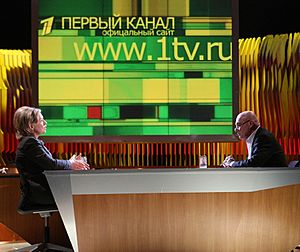
In another controversial example, on a 23 January 2005 broadcast, in the midst of widespread protests against a new reform of Russia's social benefits system (L'goty), a Channel One anchor opined, "you can understand, and should understand, those who went out on the streets, but you also have to understand that the old system has completely outlived its use." Later, in the same story, a reporter characterized those protesting against the reforms as political opportunists, adding, "criticizing the reform is good PR." A few days later, on 27 January 2005, as the protests continued across Russia, a Channel One reporter noted, "You can understand the elderly [protestors, but] repealing free [bus] fares was the last hope for public transport."
Similarly, on a 12 February 2005 broadcast, a Channel One anchor declared, "The key question of the week has been: how are Presidents [Mikheil] Saakashvili [of Georgia]) and Yushchenko [of Ukraine] different? At first, it seemed the difference was only in their appearance, in all other ways, they were like characters from the film Attack of the Clones for us." Critics of Channel One news argue that hundreds of similar examples exist where station news reporters and anchors insert editorial commentary into news reports, almost always to commend perceived allies of Russia or criticize perceived enemies.
As of 2006, Vladimir Posner, Ekaterina Andreeva, Pyotr Tolstoy and Mikhail Leontiev are among the most known political journalists of the channel. On Sunday, 28 January 2006, the Channel One news and analytical program Sunday Time (Voskresnoye Vremya) hosted by Petr Tolstoy distorted the content of a speech by Belarusian President Alexander Lukashenko related to the Russia-Belarus energy dispute to the contrary by editing it and deleting some crucial words.
According to a BBC News analysis by Stephen Ennis the channel has in its reports about Ukraine's war in Donbas "sought to further demonise and dehumanise the Ukrainian army".
On 26 February 2018 Channel One used footage from multinational military simulation organization Echelon International, attempting to pass it off as authentic Syrian War footage.
On 14 March 2022, Marina Ovsyannikova, an editor for Channel One, interrupted a live broadcast of Vremya to protest against the Russian invasion of Ukraine, carrying a poster stating in a mix of Russian and English: "Stop the war, don't believe the propaganda, here you are being lied to."
2005
According to the inspection conducted by the Audit Chamber of Russia and initiated by MP Alexander Lebedev, in 2005 the channel had the following shareholders structure and board of directors:
- Rosimushchestvo – 38.9%;
- ORT Bank Consortium – 24%;
- RastrKom 2002 – 14%;
- EberLink – 11%;
- ITAR TASS – 9.1%;
- TTTs – 3%.
- Alexey Gromov (Chairman of the Board of Directors, Press Secretary of President Vladimir Putin)
- Konstantin Ernst (Director General of the Channel One)
- Alexander Dzasokhov (then President of North Ossetia–Alania)
- Galina Karelova (Chairman of Russia's Social Insurance Fund)
- Mikhail Lesin (Adviser to President Vladimir Putin, former Mass Media Minister)
- Nikita Mikhalkov (President of Russia's Cinematographers Union)
- Mikhail Piotrovsky (Director of the State Hermitage Museum)
- Ilya Reznik (poet, composer)
- Alexander Chaikovsky (Chairman of the Composition Department of Moscow Conservatory)
- Mikhail Shvydkoi (Chief of the Federal Agency of Culture and Cinematography, former Culture Minister of Russia)
ORT Bank Consortium, RastrKom 2002 and EberLink (49%) are controlled by Roman Abramovich, while Rosimushchestvo, ITAR TASS and TTTs vote on behalf of the Russian state (51%).
2006
As of 2006, the Board of Directors of the Channel One consisted of:
- Sergei Naryshkin (Chairman of the Board of Directors, Minister, Chief of Staff of the Russian Government);
- Konstantin Ernst (Director General of the Channel One);
- Lyudmila Pridanova (Deputy Head of Rosimushchestvo);
- Alexey Gromov (Press Secretary of President Vladimir Putin);
- Mikhail Lesin (Adviser to President Vladimir Putin, former Mass Media Minister);
- Nikita Mikhalkov (President of Russia's Cinematographers Union);
- Mikhail Piotrovsky (Director of the State Hermitage Museum);
- Ilya Reznik (poet, composer);
- Alexander Chaikovsky (Chairman of the Composition Department of Moscow Conservatory, Rector of Saint Petersburg Conservatory);
- Mikhail Shvydkoi (Chief of the Federal Agency of Culture and Cinematography, former Culture Minister of Russia).
2021
In 2021, VTB Bank owned 32.89% of shares.
Eurovision Song Contest 2009
Channel One was the host broadcaster of Eurovision Song Contest 2009, announced in December 2008. [1]
Sister channels
Active
Channel One owns some digital-only television channels (under brand Channel One Digital TV-family, Цифровое телесемейство Первого канала):
- Dom Kino (Cinema House) — movies
- Dom Kino Premium (Cinema House Premium) — movies
- Muzyka Pervogo (Channel One Music) — music
- Vremya (Time) — 20th century historyккв
- Telecafe (Television Café) — food
- Bobyor (Beaver) — lifestyle
- O! — family
- Poyekhali (Let's Go) — travel
- Karusel (in co-operation with VGTRK) (Carousel) – for children
Defunct
- Telenyanya (TeleNanny) — for children
Logos
Since its inception in 1991, the logo featured a 1 in various designs.
Logo history
Its first logo in 1991 featured a blocky "1", with a significantly thinner black square outline. On 1 April 1995, this was replaced with a simple "1" block, with a circle outline, but on 1 October 1995, a logo featuring an italic "1" was launched, with the ОРТ typograph. An alternate version of the 1995 logo had blue and white colors.
On 1 January 1997, another logo featuring a golden italic "1" was launched, with a partial ring and the ОРТ letters now in 3 separate blocks, which was designed by Novocom, along with Igor Barbe. On 1 October 2000, the current logo was launched, featuring a "1" with a partial cut, on a dark blue background. The current logo was designed by ORT Design. With the renaming of "ОРТ" to "Channel One Russia" in October 2002, the idents were changed to match the new network's name; however, the 2000 logo is still used.
See also
 In Spanish: Piervy Kanal para niños
In Spanish: Piervy Kanal para niños


